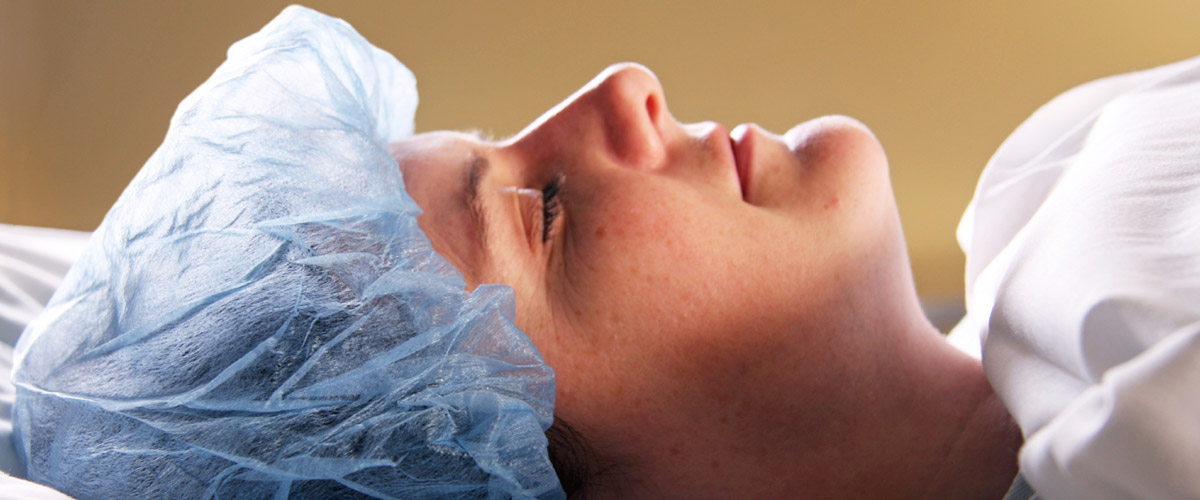In most cases breast augmentation is an elective surgery, lending itself to a planned post-op recovery. It is therefore important that you know how much time off you will actually need to resume work and life as normal.
The First 48 hours
 If you were treated as an outpatient, you could be discharged as soon as a few hours after your procedure is complete. In cases of general anesthesia you will need to be monitored for up to 24 hours after surgery and can only be discharged after this time has passed. You will have bandages covering your breasts and will be wearing specific support garments as directed by your doctor.
If you were treated as an outpatient, you could be discharged as soon as a few hours after your procedure is complete. In cases of general anesthesia you will need to be monitored for up to 24 hours after surgery and can only be discharged after this time has passed. You will have bandages covering your breasts and will be wearing specific support garments as directed by your doctor.
Keep in mind the most painful part of the recovery process is the first 24 hours after surgery. In a lot of cases, this is because the anesthesia is wearing off and you are becoming aware of the pain from the procedure. Don’t be disheartened and be patient while following all instructions from your doctor.
You will be able to walk almost immediately after your surgery. On your doctors advice, it’s best to make sure you walk for a few minutes every three or four hours. This will prevent blood clots from forming in your legs.
Week One
Keep in mind that you have just moved and stretched the breast muscle and tissue respectively, so you will most probably feel soreness in your chest. Your muscles will also be tight. There will be some swelling and discoloration and it will be difficult to raise your arms past a certain point. Make sure you point out all of these symptoms to your doctor to ensure that they are all at a normal level. Your doctor will also give you a list of expected symptoms according to your own specifications. Every patient is unique and will experience different levels of discomfort at different times.
Somewhere within the first week, you will be permitted to take your first shower. Your doctor will advise you when that is going to be ok. During this week you may also be permitted to recommence work. Most patients who commence work within the first week have desk jobs. If your job requires strenuous activity, you may have to refrain from work for up to six weeks.

Exercise is not permitted in the first week at all. You should not make any sudden movements, do any heavy lifting or twist your upper body. Your doctor will provide you with specific instructions in this regard and it is most important that you follow all instructions with strict specificity.
Most of the bruising will also disappear in the first week. If bruising still persists after ten days, you should consult your doctor.
Week two to six post operation
Physical activity should be kept to a minimum for up to six weeks after your surgery. Most breast implants are placed under the pectoralis muscle and for those patients, it is imperative that they don’t use their arms or chest for any form of exercise in the first six weeks.
Depending on the type of surgery you have had, varying degrees of pain will be experienced. Patients should take great care to ensure all activities they undertake are light and gentle on their breasts.
Once consulting your doctor, you will most probably be able to resume work and exercise after six weeks have passed. Please note that no two individuals are the same and there may be cases where a slightly longer recovery time is needed. It is best to consult your doctor to obtain a timeline specific to your case.
Post Op Medication
Healing involves more than just rest and physical care of the chest area. Your doctor will most likely prescribe medication including pain relievers and antibiotics, in order to curb the post-op soreness and assist in the healing process. Be sure to take all medication as prescribed by your doctor.
Locations for recovery
Home
If you are discharged and are going home, you will have to ensure a licensed driver will be accompanying you home. You will also need a care taker with you for at least the first 24 hours. That person will have to be competent enough to care for you and follow the instructions given by your doctor. Be certain to give this person plenty of notice prior to the your day of surgery.

Alternative place of recovery
Some patients opt to stay in a recovery facility or in a hotel with licensed professionals on staff who can attend to their post op needs. Your doctor will be able to tell you if this is the best option for you. If so, they will also be able to suggest locations they work with regularly where you will be able to partake of the best type of care needed.
Stay in touch with your doctor
Remember that in between post op visits to your doctor you will still be able to maintain contact with them. It is encouraged to have your doctors number, email or best means of communication handy, in case you have any questions. Don’t be afraid to reach out and ask them questions if you notice something that they did not warn you about. And in cases of emergency, do call 911 immediately.




